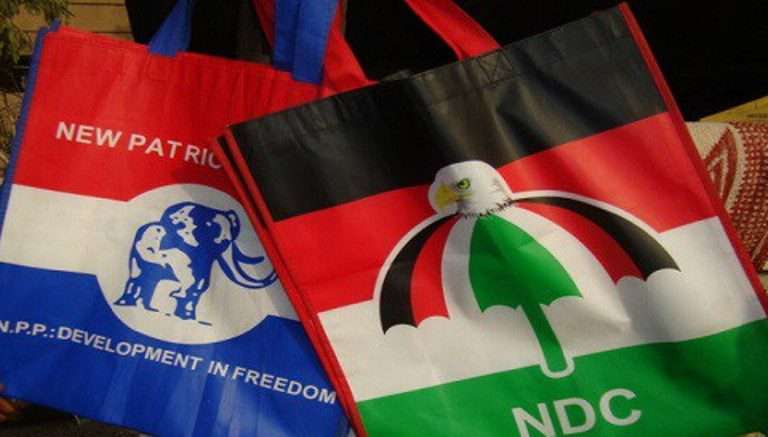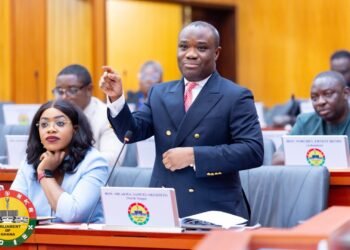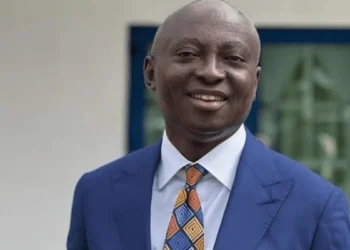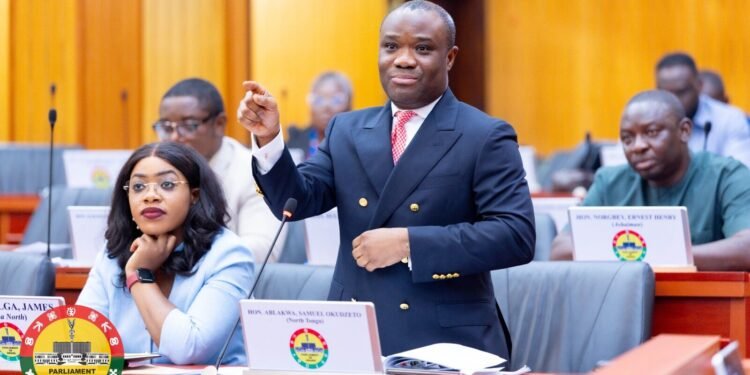The Accra sanitation crisis has once again taken center stage, with former Member of Parliament for Ablekuma Central, Ebenezer Nii Narh Nartey, pointing accusing fingers at Ghana’s two dominant political parties—the New Patriotic Party (NPP) and the National Democratic Congress (NDC).
According to the former MP, partisan bickering and political interference have created a leadership vacuum that has left Ghana’s capital overwhelmed by uncollected refuse and general urban chaos.
Nartey argued that both major parties must accept blame for Accra’s deplorable state. He expressed frustration over the inability of successive governments to rise above politics and address pressing civic issues like waste management, urban planning, and street congestion.
“We need to get a political role to deal with issues. That’s one major problem we have in this country,”
Ebenezer Nii Narh Nartey
He emphasized that without a non-partisan political will to tackle these problems, Accra will continue to suffer from disorganization and neglect.
Citing specific examples, Nartey described the Central Business District, particularly the Kinbu Road area, as a chaotic mess.
According to him, the vicinity around Accra City Hotel and Accra Technical University has been turned into a de facto market, with hawkers and makeshift vendors taking over pedestrian walkways and roads.
The result is an overcrowded and unmanageable urban sprawl that inconveniences both pedestrians and motorists.
His words are a damning indictment of political culture in Ghana, where decisions about city management often fall prey to electoral calculations rather than long-term planning.

Nartey did not hold back in apportioning blame. “So, I keep on saying, especially in Accra, two political parties, the NDC and the NPP, are the reasons Accra is filthy.”
He revisited a key moment in Ghana’s municipal history when the late President John Atta Mills appointed Alfred Oko Vanderpuije as Mayor of Accra.
According to Nartey, the mayor had good intentions and made commendable efforts to bring order to the city. However, he said Vanderpuije’s reforms were obstructed by internal party politics.
“When President Mills made Alfred Oko Vanderpuije the Mayor of Accra and he started to put things in order, the former National Organiser of the NDC, Yaw Boateng Gyan, said, ‘We’ve been campaigning while you were abroad. You can’t make us lose votes,’ and so Oko Vanderpuije washed his hands. At the end of the day, the problem is still there.”
Ebenezer Nii Narh Nartey
Partisan Interests Undermine Urban Clean-Up Despite Sanitation Issues
That wasn’t the only instance where well-intentioned urban reforms were derailed. Ebenezer Nii Narh Nartey also praised the former Greater Accra Regional Minister, Henry Quartey, for his ambitious clean-up and city reordering efforts.

However, even Quartey, with all his enthusiasm and political clout, could not withstand the pressure from his own party members and other entrenched interests.
“The former regional minister, Henry Quartey, started in Greater Accra to make things work. Our own people started insulting him, saying all manner of things. Others even went to the extent of going to the president to lie about him. Some even organised women to the national party headquarters to demonstrate, and Henry had to wash his hands. At the end of the day, the problem is still there.”
Ebenezer Nii Narh Nartey
What emerges from Nartey’s commentary is a disturbing pattern: any attempt to bring discipline to the capital city is often sabotaged—not by external opponents—but by political insiders worried more about vote loss than clean streets.

The capital’s woes are not due to a lack of ideas or policy frameworks. Rather, they stem from a lack of collective political will to rise above narrow interests.
Accra, once heralded as the gateway to Africa, now faces a crisis of civic identity. Piles of garbage, overcrowded streets, and mushrooming informal markets are fast defining the city’s image.
The city desperately needs a comprehensive, non-partisan approach to sanitation and urban development.
It is high time Ghanaians asked whether their leaders value votes more than lives, and whether cosmetic efforts to tidy the city around high-profile events will ever match the sustained attention it truly deserves.
Nartey’s comments are a wake-up call not just for political elites, but for citizens who have settled for dysfunction as the norm.
Unless the politics is taken out of Accra sanitation, the city’s decay will continue—one plastic bag, blocked drain, and abandoned project at a time.
READ ALSO: Trump Slams Federal Reserve Chair























